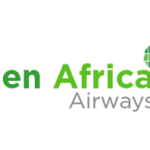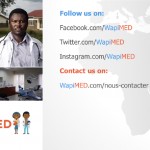It is still not clear if at all the renowned examination is the true test of knowledge. But the fact still remains that parents and teachers normally assess the academic performance by analyzing examination results. It is usually believed that low test scores call for an extra work. It also calls for assistance so as to improve the performance of the students. According to Martins Fidelis co-founder of DoLessons, an edtech company, Nigerian parents usually desire to have one-on-one private classes for their children. Fidelis is an ICT teacher in a high school located in Port Harcourt South.
The main goal was to get the best tutors that will assist children to develop strong skills in self-study as well as improve their exams performance. But getting the best tutors with the required skills and experience to fill the learning void was challenging. According to Martin who is also the DoLessons’ CEO, the startup was launched into the edtech industry in 2017. It was to serve as an alternative tutorial and learning platform. The platform mainly connects Nigerian students having academic difficulties to qualified tutors for academic drills after schools. Martin is a Computer Science graduate from the University of Calabar.
The startup’s main aim is to ensure that students obtain better learning, develop skills in self-study improve grades and get better exam performance. According to Martin, the system depends on individualized lesson options. The type of approach helps to customize the learning needs of a student to go hand in hand with learning style, pace, and predefined timetables. The team is currently not in a hurry to get into the market later than its competitors. Launched in November 2014, DoLessons only carried out piloting on 20th February 2017. This gave a room for other tutorial platforms such as Prep Class and Primary Tutors to set up, obtaining traction, and develop brand awareness. They also created a market category. DoLessons believes that the competition is healthy for offering solutions to challenges facing Nigerian education. Martin said that the company is not worried about competition. They are only focused on innovation and offer alternative value to their clients. He added that there are more than 200 edtech startups in the UK and US. There is a relatively high education standard in the two countries and most of the startups are getting average revenue of $1 million per year.
Furthermore, the startup had obtained 20% share of the market for tutoring and more than 40% share of the book supply market. He said that the firm is looking forward to doubling the figures before the end of this year. According to the analysis of the marketplace, there is still room to get on the same level. The Nigerian tutorial market is said to be worth more than $2 billion. Lagos commands 50% of the market, Abuja has 30% and the other 35 States share the remaining 20%. Martins said that the market has the potential to increase three times in the next decade. This is because parents are continuing to embrace private learning as the solution to the low standards of education in Nigeria and Africa as a continent.
Currently, on average the startup offers 200 payable tutoring hours per month. However, it targets to offer 5,000 chargeable tutorial hours per week. This will be achieved through the strong marketing initiative. Additionally, it has developed a local government area functionality algorithm. This helps students to post request of tutors to a group of jobs page.
Tutors only need to sign into the platform and create tutorial profiles. Thereafter they go through an online subject examination to prove their level of know-how on the subject they plan to teach. A candidate is disqualified if he scores below 60% it the two trials of evaluation. The successful tutors get a subject badge to prove that they are expert tutors in the subject. This is then uploaded to the tutor listing page for the students to read their profile and select the lesson tutors. Tutor’s listing engine then displays a list of the startup’s qualified tutors for students to choose lesson teachers according to Local Government (LGA) of residence, for proximity. Those located in Ikeja LGA and in need of a tutor will not be able to see tutors that stays in Ojo LGA. Tutors have an option of selecting their area of carrying out tutorials.
On the other hand, students can develop an account, choose their classes and the subjects. They make offline or online payments for the lessons, put up a schedule based on the availability of the selected tutor. Tutors then get booking notification through an SMS and contact the student for the start of the lesson. DoLesson gets 25% of the lesson cost for its overhead financing, administration, and marketing. The remaining 75% goes to the tutor. Lesson costs vary depending on the subject and classes that the student books. The average cost is $85 monthly for two hours session that takes time three times in a week. But the special needs students are charged an extra cost compared to the rest.
DoLesson gives users a chance to sell learning materials to a large pool of learners. Parents are able to list their children’s used materials for sale on the startup’s marketplace. Publishers, booksellers and vendors can also develop an account and sell online. DoLssons has 6,811 verified tutors, 743 vendors and booksellers and 1,314 students. But the startup is yet to get external funding. It is believed that is carrying out proof of concept with three investors for undisclosed capital. It has not yet declared its profit but it is targeting monthly revenue worth $150k in 2020.



